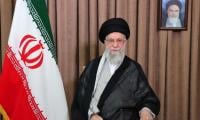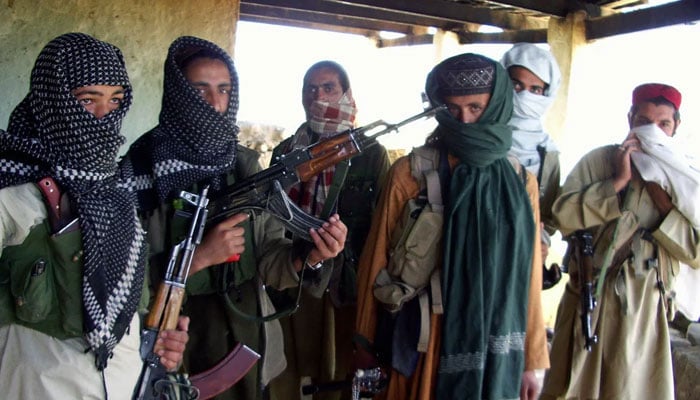Terror-free Pakistan
Army has reaffirmed its commitment to not allow the hard-won successes against terrorism to be reversed
The resurgence of terrorism in Pakistan is an alarming development that threatens the nation’s hard-earned progress and stability. The recent meeting of top military leaders underscores the gravity of the situation, as they assessed the threats posed by inimical forces, subversive proxies, and facilitators of both external and internal adversaries, particularly those active in Balochistan and Khyber Pakhtunkhwa. The army has reaffirmed its commitment to not allow the hard-won successes against terrorism to be reversed. This resolve is critical, as the rise in terrorist activities poses a significant challenge to the country’s security, economy, and social fabric. Over the past three years, Pakistan has witnessed a disturbing increase in terrorist attacks. Official data and reports from research groups paint a stark picture of the systematic rise in violence. This resurgence is particularly troubling given that Pakistan had previously succeeded in eliminating much of the terrorist threat from its soil. The current situation not only places immense strain on the country’s security forces, who are conducting intelligence-based operations nationwide, but also has far-reaching consequences for the economy and regional stability.
Terrorism in Pakistan has multifaceted impacts. The constant threat of attacks forces security forces to remain on high alert, draining resources and morale. Investors, both foreign and domestic, are understandably hesitant to commit to a country where the security situation is precarious. The most important are the Chinese, who are heavily invested in Pakistan through initiatives like the China-Pakistan Economic Corridor (CPEC), and it is important to ensure the safety of their personnel and projects. The Afghan Taliban’s reluctance to address the issue of safe havens for the TTP further complicates the situation. The rising attacks in Balochistan, including the use of suicide bombers by Baloch terrorists, signal a dangerous escalation that cannot be ignored. Pakistan’s already struggling economy is another casualty of this resurgence. The government, under the constraints of an IMF programme, is enforcing stringent economic measures to stabilize the economy. But any such efforts are undermined by the ongoing threat of terrorism, which obviously erodes investor confidence. The economic and societal turbulence caused by terrorism is not a new challenge for Pakistan and the nation has paid a steep price in the form of thousands of lives lost and years of economic stagnation. The battle to regain peace was arduous, which is why the current resurgence of terrorism demands a resolute and coordinated response.
A military offensive to eradicate terrorists from Pakistan is undoubtedly necessary. However, there must be a political consensus on this issue, ensuring that all stakeholders are aligned in their commitment to rooting out terrorism. This requires acknowledging and remedying past mistakes. In addition to domestic efforts, Pakistan also needs the support of regional and international actors to effectively combat the terror it faces. The recent condemnation of terrorist attacks in Balochistan by the US and the reaffirmation of a shared interest in combating threats to regional security is an encouraging sign. The global community, particularly Pakistan’s allies, must recognize the significance of this battle. The stakes are high, and Pakistan just cannot afford to lose the ground it has gained over the years. For this, all of the country’s stakeholders must be on the otherwise-elusive ‘one page’: a terror-free Pakistan should be our focus at the moment.
-
 Kelly Osbourne's Mom Sharon Receives 'shut Up' Call Accepting An Award For Late Hubby?
Kelly Osbourne's Mom Sharon Receives 'shut Up' Call Accepting An Award For Late Hubby? -
 Claude Overtakes ChatGPT On Apple App Store After Pentagon Dispute
Claude Overtakes ChatGPT On Apple App Store After Pentagon Dispute -
 What Happened To Ayatollah Ali Khamenei's Family During US -Israel Attack On Iran
What Happened To Ayatollah Ali Khamenei's Family During US -Israel Attack On Iran -
 BRIT Awards 2026 Winners Revealed
BRIT Awards 2026 Winners Revealed -
 Shia LaBeouf Arrested Again In New Orleans On Additional Battery Charge
Shia LaBeouf Arrested Again In New Orleans On Additional Battery Charge -
 Shamed Andrew Upset With THIS Family Member Over Current Condition
Shamed Andrew Upset With THIS Family Member Over Current Condition -
 Michael Jackson Estate Sued With Allegations Of Years Of Abuse From Late Singer
Michael Jackson Estate Sued With Allegations Of Years Of Abuse From Late Singer -
 Meghan Markle Shows ‘real Pain’ With Her Body Language In Jordan
Meghan Markle Shows ‘real Pain’ With Her Body Language In Jordan -
 Jennifer Garner Names Her Movie That She Hasn't Seen In Full Since Its Premiere
Jennifer Garner Names Her Movie That She Hasn't Seen In Full Since Its Premiere -
 Bridgerton’s Michelle Mao On Facing Backlash As Season Four Antagonist
Bridgerton’s Michelle Mao On Facing Backlash As Season Four Antagonist -
 King Charles Gets New ‘secret Weapon’ After Andrew Messes Up
King Charles Gets New ‘secret Weapon’ After Andrew Messes Up -
 Shia LaBeouf Makes Bold Claim About Homosexuals In First Interview After Mardi Gras Arrest
Shia LaBeouf Makes Bold Claim About Homosexuals In First Interview After Mardi Gras Arrest -
 Princess Beatrice, Eugenie ‘strained’ As They Are ‘not Turning Back’ On Andrew
Princess Beatrice, Eugenie ‘strained’ As They Are ‘not Turning Back’ On Andrew -
 Benny Blanco Addresses ‘dirty Feet’ Backlash After Podcast Moment Sparks Online Frenzy
Benny Blanco Addresses ‘dirty Feet’ Backlash After Podcast Moment Sparks Online Frenzy -
 Sarah Ferguson Unusual Trait That Confused Royal Expert
Sarah Ferguson Unusual Trait That Confused Royal Expert -
 Prince William, Kate Middleton Left Sarah Ferguson Feeling 'worthless'
Prince William, Kate Middleton Left Sarah Ferguson Feeling 'worthless'




